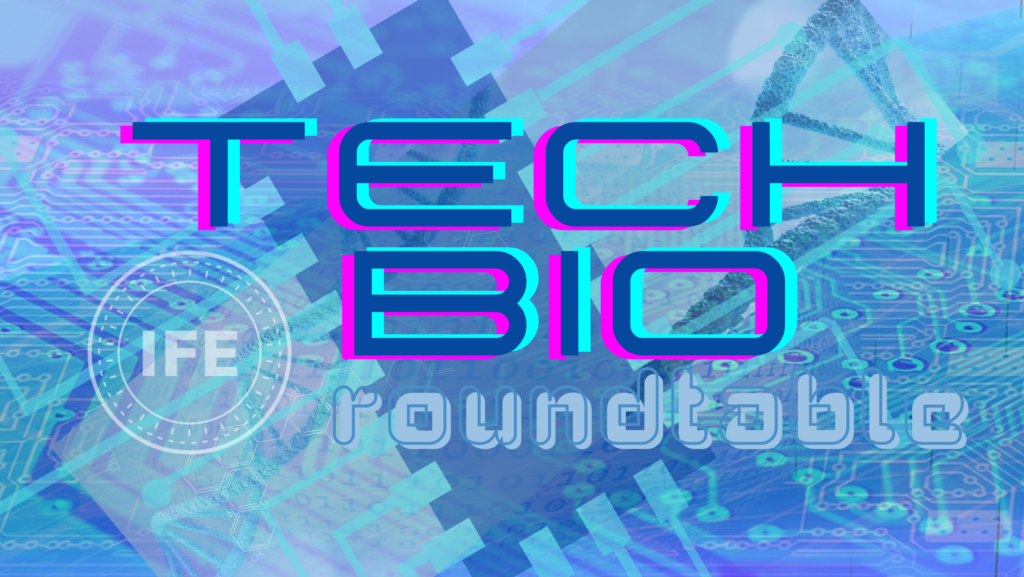
TechBio: Disruptive Innovation at the Intersection of Computer Science, Artificial Intelligence/Machine Learning (AI/ML), and Medicine
Mission Statement: Recent advances in computer science, machine learning, and artificial intelligence (AI/ML) have given rise to the new and cutting-edge field of TechBio. TechBio reimagines scientific and medical innovation by allowing technology to disrupt age-old paradigms in efforts to keep pace with the 21st-century demands of modern medicine.
Join Omair Khan, MD/PhD from Stanford University and IFE’s Inaugural Jim Valentine Fellow and now Founder of “TechBio: Disruptive Innovation at the Intersection of Computer Science, Artificial Intelligence/Machine Learning (AI/ML), and Medicine” and Coach Kathy Kemper, alongside special guests as they explore how TechBio will address medicine’s biggest challenges to date and revolutionize everything from drug discovery and clinical trials to the patient experience and payer reimbursements.
From Biotech to TechBio
The term “Biotechnology” was coined in 1919. Today we see a shift to technology-first biotechnology companies – what we’ve been calling TechBio for the past 10 years.
Biology is the most advanced technology on earth. Imagine a cell phone that can grow, reproduce, and fix itself. That’s what our cells know how to do. It’s what everything from a single cell of yeast or bacteria to a great redwood tree knows how to do.
And now, thanks to incredible enabling technologies, we are learning how to harness the incredible power of biology to do the most important things on earth: to heal, feed, and provide for ourselves and our planet.
Why Now? What’s driving TechBio?
There are three main tech-driven trends that are enabling and pushing this new industry forward:
Biology is getting digitized. Technologies like DNA synthesis, sequencing, and sensors are cheap and getting cheaper, enabling us to turn analog biology into digital data and back to analog synthetic DNA/biology.
Computation and machine learning have advanced. Now that biology is digital, we can use advancements in AI and machine learning to make sense of the huge amount of digital biology datasets.
We are moving from scientists pipetting in a lab, to high throughput automation at scale. Labor that once took months or even years can be done rapidly, remotely, and most importantly, in a reproducible manner. It’s speeding up the scientific method like we’ve never seen before.
These trends accelerate design-build-test-learn iteration cycles. These unlock more scientific discoveries, allow companies to create products faster, and provide robust and diverse pipelines for companies to develop, co-develop, and partner to work on multiple verticals and products.